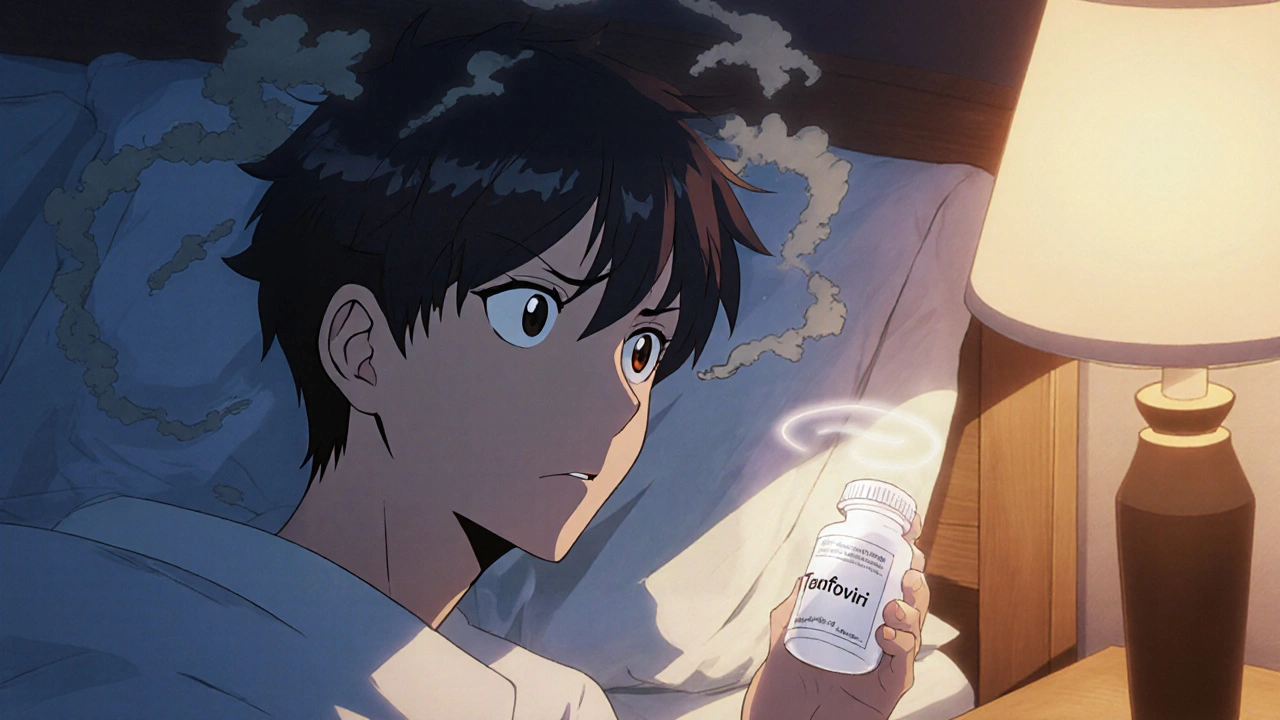When dealing with Tenofovir side effects, the unwanted reactions people experience while taking the antiviral drug Tenofovir. Also known as TDF, these effects can range from mild stomach upset to serious kidney and bone problems. Understanding them helps you catch issues early and keep your treatment on track.
Tenofovir itself is a antiretroviral medication, used primarily to treat HIV infection and chronic hepatitis B. It belongs to the nucleotide reverse transcriptase inhibitor (NRTI) class, which blocks the virus from copying its genetic material. While it’s a powerhouse for viral suppression, the drug also interacts with the kidneys and bones, leading to the two most talked‑about side effects: kidney toxicity, a decline in renal function that can be detected through blood and urine tests and bone mineral density loss, a reduction in bone strength that raises fracture risk. These issues don’t happen to everyone, but they’re common enough that clinicians monitor them closely.
Why do these side effects appear? The drug is filtered by the kidneys, so high concentrations can hurt the tiny filtering units called nephrons. This relationship creates the semantic triple: Tenofovir side effects require regular kidney function monitoring. Likewise, Tenofovir can affect the cells that build bone, leading to another triple: Tenofovir side effects influence bone mineral density. Patients with pre‑existing kidney disease, older age, or low body weight are at higher risk. Symptoms to watch for include increased thirst, frequent urination, swelling in the ankles, unexplained fatigue, or sudden joint pain.
Early detection is key. Your doctor will likely order serum creatinine and phosphate tests every few months, plus a bone density scan if you have risk factors. If the labs show a dip in kidney function, doctors might lower the dose, switch to a newer Tenofovir formulation (like Tenofovir alafenamide, which is gentler on kidneys), or add a protective medication. For bone loss, calcium and vitamin D supplements, weight‑bearing exercise, and sometimes a bisphosphonate can offset the decline. This creates a third triple: Managing Tenofovir side effects often involves lifestyle adjustments and supplemental therapy. Keeping an eye on your diet, staying hydrated, and reporting any new symptoms promptly can make a big difference.
The collection of articles below dives deeper into each of these topics. You’ll find practical guides on monitoring kidney health, step‑by‑step advice for protecting bone density, and comparisons of Tenofovir with newer antivirals. Whether you’re just starting therapy or have been on Tenofovir for years, the posts give you actionable insights to stay ahead of side effects and keep your treatment effective.
